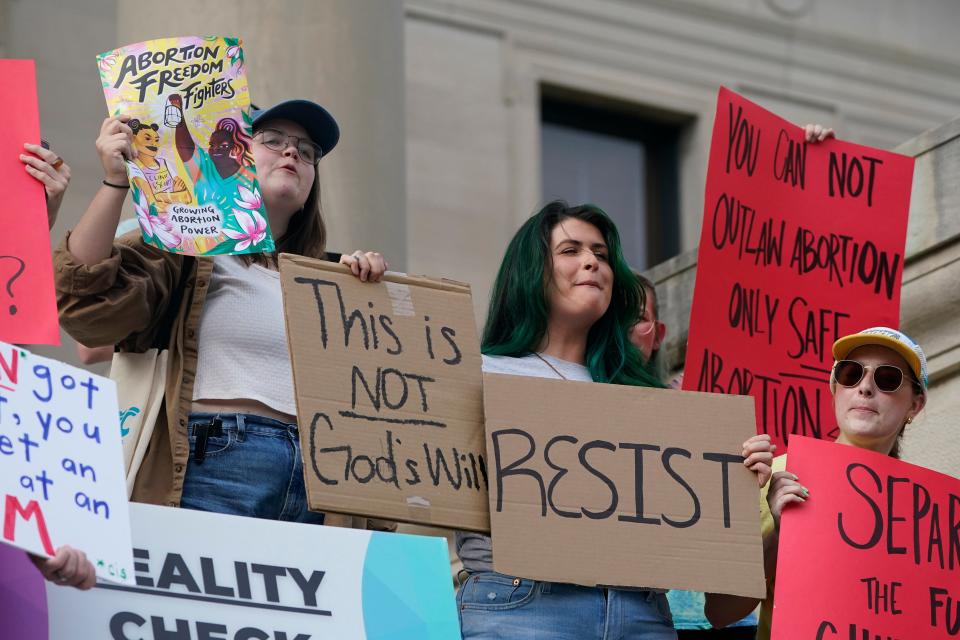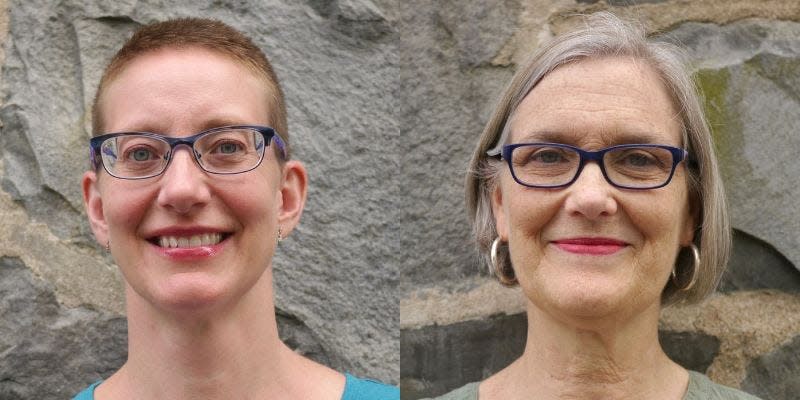Clergy aided pre-Roe abortion seekers. Now our book about them looks like a how-to guide.
When we started to gather stories 20 years ago about the Clergy Consultation Service on Abortion, we thought the subject would make an interesting footnote in the history of abortion rights: A nationwide group of ministers and rabbis had, in the years before abortion was legalized, referred women to licensed physicians for safe abortions.
Now that the Supreme Court has allowed states to make abortion illegal again, our book about the work the Clergy Consultation Service on Abortion did decades ago looks like a how-to guide for the present.
Starting in 1967, when abortion was either illegal or very difficult to obtain in every state, and efforts to reform the law in New York had failed, a group of Protestant ministers and Jewish rabbis began to make abortion referrals. They knew the risk but did so openly.
Calls inundated church answering machine
A front-page New York Times article named 21 members and the congregations they served, with information on how to reach the group. Members set up an answering machine at the Judson Memorial Church in New York City with an outgoing message that named two clergy people on call that week with their phone numbers. Callers made an appointment at the minister or rabbi's office, where they were counseled and given information about their options. The service was inundated with calls.
What progressives get wrong: Now, it's citizens who will decide the abortion debate
The Clergy Consultation Service on Abortion, which soon became a nationwide network, had strict operating rules. They counseled in-person only, not by phone. The service was free. They referred out of state, to make prosecution more difficult. They referred only to licensed physicians who had been visited and vetted by one of the women volunteering with the group – usually posing as a pregnant person. The clergy counselors did not deal with the doctors. An approved-resources list (as well as a red-flagged do-not-use list) was kept by the indomitable Arlene Carmen, Judson's church administrator, who did some of the vetting herself.
These clergy hoped that if they framed their referrals as an ordinary part of their pastoral care, their counseling sessions would be treated as confidential under the law. And, of course, as a group of mostly white, male, middle-class members of a highly respected profession, they were aware they had privilege they could wield on behalf of women in search of abortions. They did so, as their spokesman, the Rev. Howard Moody, said, "to offer compassion and to increase the freedom of women with problem pregnancies."
Eventually, there were about 3,000 counselors in the network, and they referred hundreds of thousands of people for safe abortions. The clergy became so expert in the field of outpatient abortion that they were instrumental in setting up a low-cost clinic, run by one of the doctors they had been referring to, that opened when abortion became legal in New York in July 1970. After that, the network referred many patients from other states to that clinic, Women's Services.
The first statistics on the safety of outpatient abortions came from Women's Services and were published in The New England Journal of Medicine in 1972 – and might have figured into Justice Harry Blackmun's majority opinion in Roe v. Wade.
Views differ on when personhood begins
Does it seem strange that these mainline religious leaders in the 1960s supported abortion? It shouldn't. In Judaism and Christianity, views on the earliest stages of human life have long differed, with some traditions teaching that personhood begins at birth.
Alito's America: Where 'eminent' jurists believe in witches but women are the hysterics
The topic of when a soul enters an embryo came up for discussion among Christian theologians: For St. Augustine, it was at 40 days from conception for males and 80 days for females, an idea he took from Aristotle. Thomas Aquinas adhered to this ancient concept as well.
In the British American colonies, abortion was permitted until the moment a pregnant person could feel fetal movement, called "quickening," which generally happens about 16 to 20 weeks into pregnancy. Before quickening, herbal remedies could be used to bring on menstruation and induce an early abortion.
In the mid-1800s the American Medical Association began to discredit the idea of quickening as unscientific, advocate criminalizing abortion and promote their own professionalism over midwives and other traditional practitioners – including those who had long provided abortions.
In 1869, Pope Pius IX declared that an embryo was a human being with a soul from the time of conception, making abortion at any stage a sin for Roman Catholics.
State by state, laws were passed to criminalize abortion. Sound familiar?
Dangers of outright abortion prohibition
But Americans, including religious people, continued to seek and get abortions.
So-called therapeutic hospital abortions were available in many places to well-connected women who could pass a grilling by a committee of (usually all-male) doctors and pay for several days in the hospital. Others sought the help of midwives or shady operators, or they used dangerous home remedies or instruments to try to end their pregnancies.
Abortion was common but highly stigmatized and often dangerous.
Fix the Supreme Court: Don't blame the justices for behaving as expected

Even as Catholic bishops actively opposed abortion rights in the 1960s, a majority of ordinary American Catholics agreed that legal abortion should be available in certain circumstances. (At that time, even evangelical Protestants were mostly silent on the subject; evangelicals didn't join the Catholic Right to Life movement until the 1980s.)
Today a majority of Americans believe abortion should be legal in all or most cases – of those, a majority consider themselves religious.History shows us faith and abortion are not mutually exclusive.

D.A. Dirks and Patricia A. Relf are the authors of "To Offer Compassion: A History of the Clergy Consultation Service on Abortion."
You can read diverse opinions from our Board of Contributors and other writers on the Opinion front page, on Twitter @usatodayopinion and in our daily Opinion newsletter. To respond to a column, submit a comment to letters@usatoday.com.
This article originally appeared on USA TODAY: History of clergy abortion referrals takes new meaning post Roe v Wade

 Yahoo Movies
Yahoo Movies 
